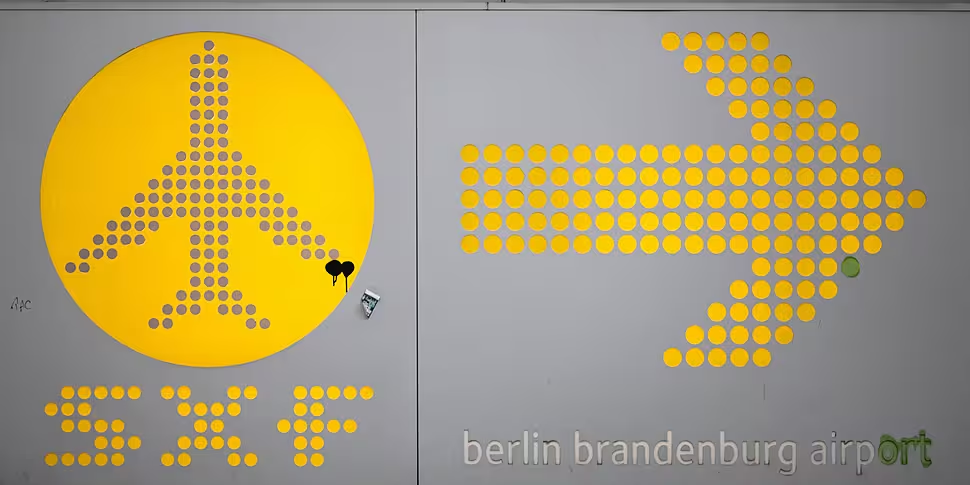The European Union is considering tougher travel restrictions to prevent the spread of coronavirus variants across the bloc.
The European Commission has said restrictions around travel across the EU should be coordinated, and allow for essential workers to cross borders freely.
It also wants more testing and sequencing for variants, saying there should be a check on 5% of all swabs.
Currently Ireland is checking around 1%.
The current traffic light travel system rates EU countries as green, orange or red - depending on the number of COVID-19 cases per 100,000 of the population, the positivity rate and the number of tests carried out.
But speaking on Thursday, European Commission President Ursula von der Leyen said they are proposing a further 'dark red' zone.
She said: "In order to keep our external and internal borders open, we need targeting measures that keep us all safe."
"We need, we think, to refine our mapping - so we propose that a newly-introduced category of dark red.
"A dark red zone would show that in this zone, the virus is circulating at a very high level.
"Persons traveling from dark red areas could be required to do a test before departure, as well as to undergo quarantine after arrival."
"And in view of the very serious health situation, all non-essential travel should be strongly discouraged - both within the country and of course across borders.
"At the same time, it is absolutely essential to keep the single market functioning."
Press Conference following #EUCO VTC on coronavirus https://t.co/1DZsTVLyza
— Ursula von der Leyen (@vonderleyen) January 21, 2021
She also said that measures would be put in place for those travelling "from third countries" from outside the EU.
"We would, for example, require testing before departure".
Vaccines
She said EU leaders have agreed to get as many doses as possible out to their citizens.
"Indeed across Europe, the health situation remains very serious - and yes there is reason for hope because of the vaccines, but there's also strong reason for concern with the new variants we are observing".
She said the EU had to remain "focused and determined" in its response, ensure delivery of vaccines from companies and quick use of the available vaccines.
She said member states had agreed to administer "as many doses as possible" over the coming weeks.
She said testing and sequencing should be ramped up, which will be supported by the European Centre for Disease Prevention and Control (ECDC) and targeted funding.
On proposed vaccine certificates, she said a documentation of vaccination "is a medical necessity" under World Health Organisation (WHO) standards.
"The use to be made of this certificate must be very carefully considered," she said.
"There are a few yet unknown variables to take into account - for example the medical question [of] 'Does vaccination inhibit transmission of the virus by the vaccinated person?' - we have no answer on that - and 'how long is the vaccination effective': we do not know that for certain neither".
She added that a political question arises around how you "respect the rights of those who have not had access to a vaccine".
She said there will need a "thorough debate and a consensus" among member states on possible other uses of the certificate "when the time is right".
And Taoiseach Micheál Martin described the meeting as "constructive", and said all the leaders "agree on urgent need to press ahead with vaccinations."
Constructive meeting with my fellow #EUCO leaders tonight on our joint fight against COVID-19. Increasing levels of concern, including the risk of new variants. All agree on urgent need to press ahead with vaccinations. pic.twitter.com/ZC54RiDO6c
— Micheál Martin (@MichealMartinTD) January 21, 2021









